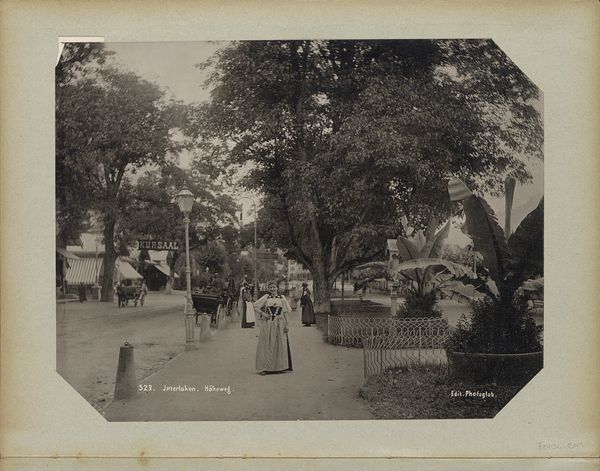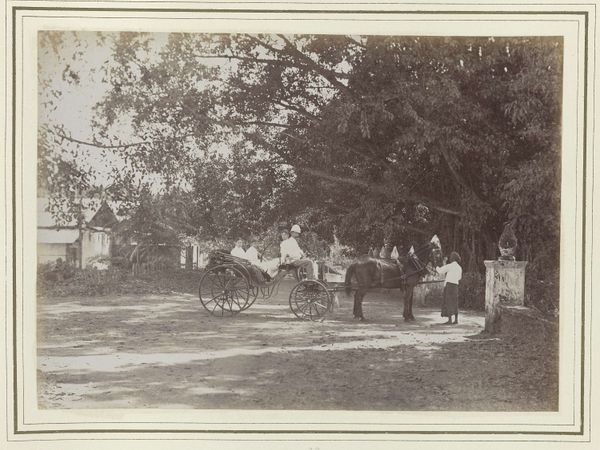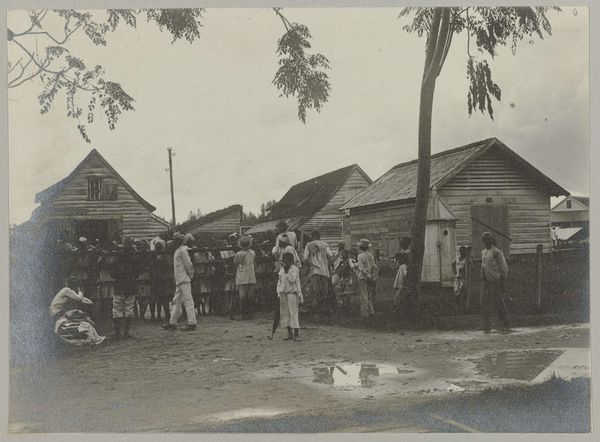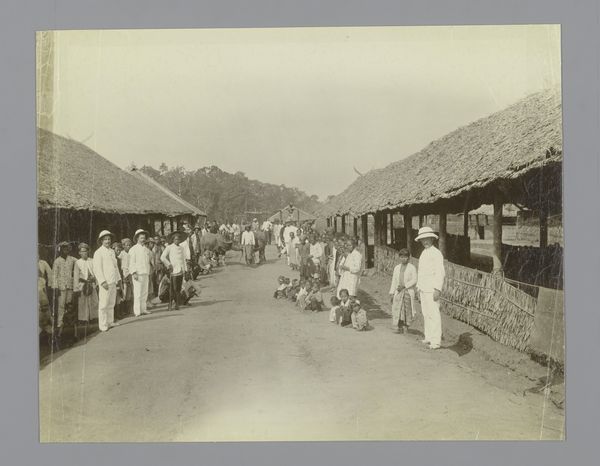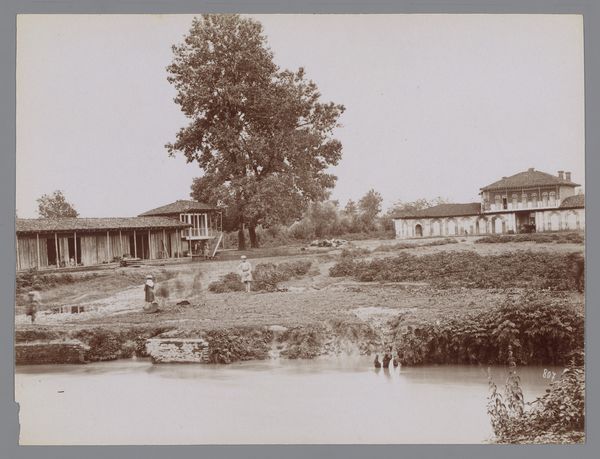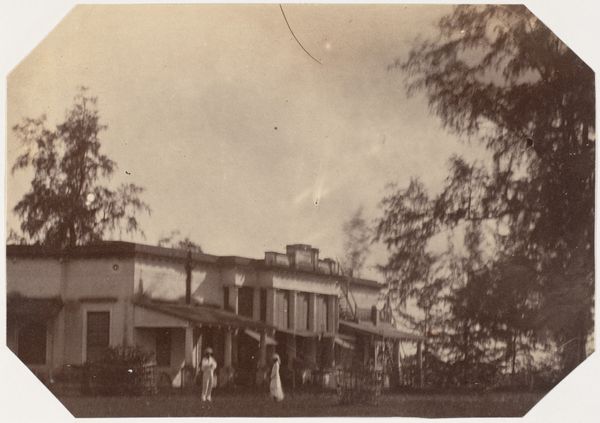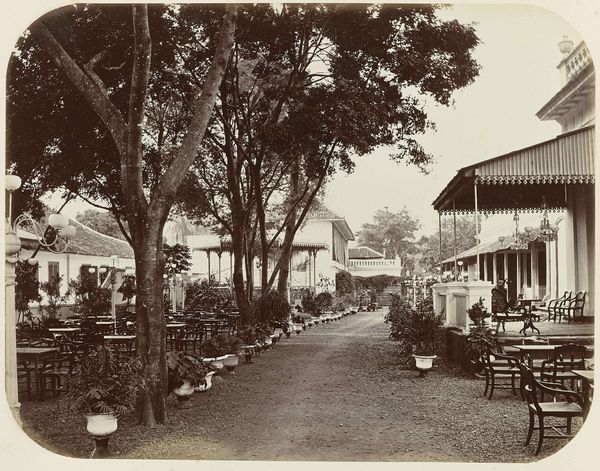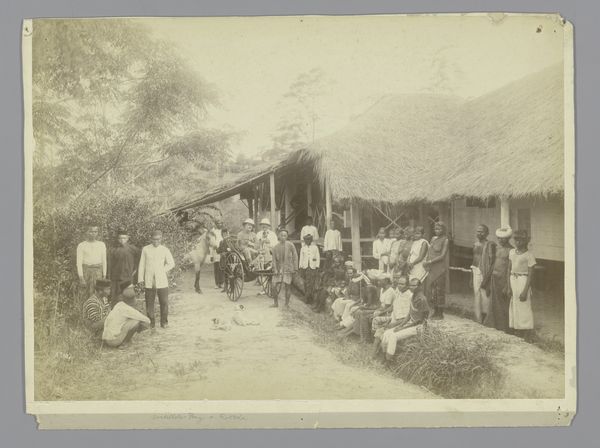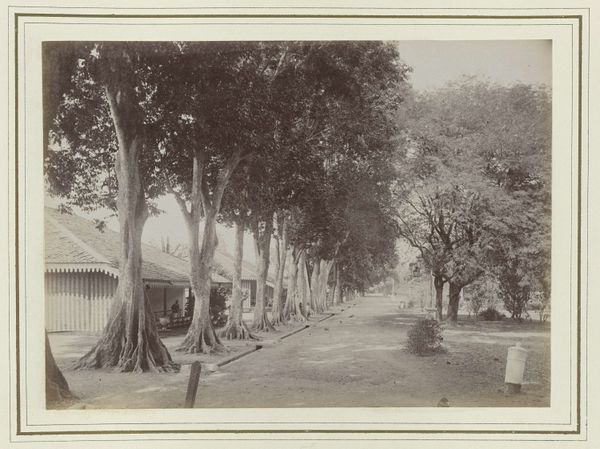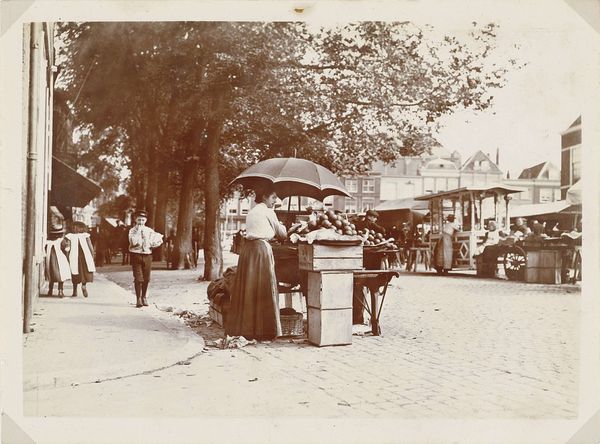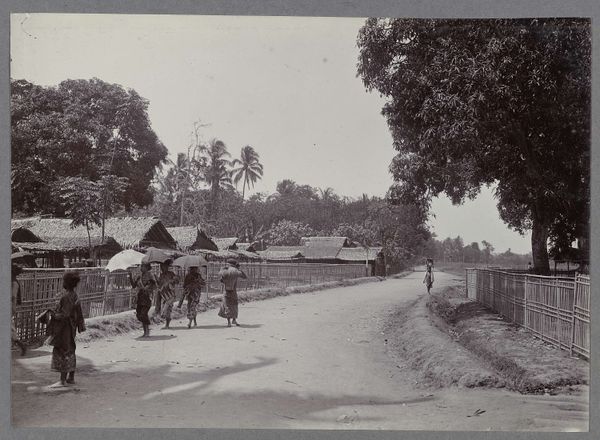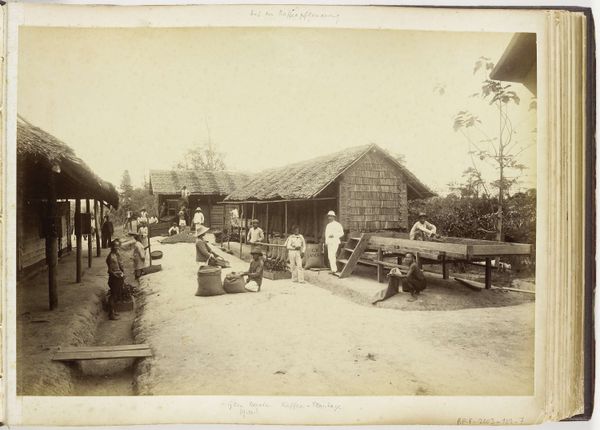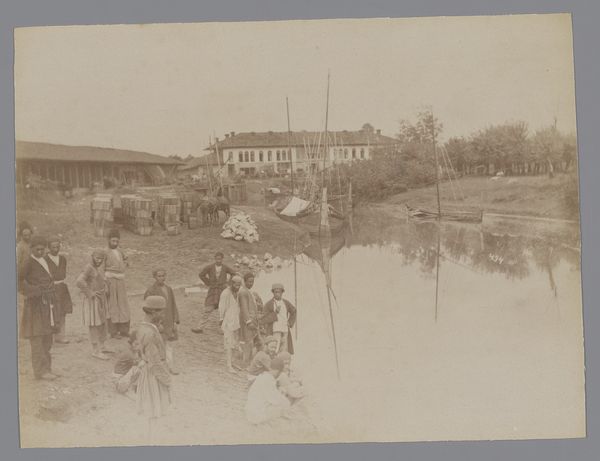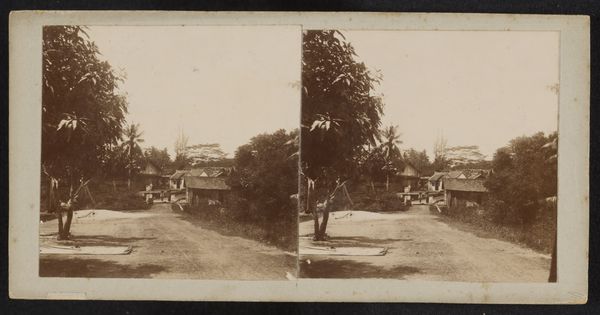
photography, albumen-print
#
portrait
#
landscape
#
photography
#
orientalism
#
cityscape
#
albumen-print
Dimensions: height 155 mm, width 204 mm
Copyright: Rijks Museum: Open Domain
Curator: Welcome. We're looking at an albumen print titled "Gezicht op de stad Rescht, Iran," created by Antoine Sevruguin, sometime between 1880 and 1910. Editor: There’s something striking about its stark simplicity. The tonal range, reduced almost entirely to sepia, lends it a somewhat melancholic atmosphere, and it's bisected neatly by converging orthogonals—leading us to an almost non-descript background. Curator: Yes, the perspective draws the eye into the depths of the composition. Sevruguin was known for his work within the Orientalist movement, capturing scenes of Persian life. Notice the figures carefully arranged along the road—they provide depth while documenting a diverse range of Persian attires. Editor: Absolutely. I see layers of symbolism here. Consider the people themselves, posed in what appears to be traditional dress; each garment tells a story of identity and social standing, preserved through the lens. The somewhat muted architecture and overall stillness project a timeless quality. The clothing almost feels like a means to immortalize aspects of cultural identities from the photographed region. Curator: Indeed. Also observe the use of light—or rather, the management of it. Sevruguin wasn't simply taking snapshots. He structured scenes carefully. The positioning of these subjects with relationship to light, shade, and architectural element reveals an engagement with the prevailing compositional precepts of academic painting. Editor: So true! The architectural forms are simple. Yet they possess their own significance, representing the city itself as a complex cultural sign. Curator: What interests me particularly is the implied tension within. A cultural specificity on display through garments combined with those established formal techniques results in the impression that we, as viewers, are being positioned in ways that perhaps the residents are not. Editor: An interesting point, since it forces us to reflect upon the nature of documentation itself, its limitations, and also what power it holds as a cultural artifact over time. Thanks for that! Curator: Likewise. It's pieces like this that keep the past in dialogue with the present, prompting a discussion.
Comments
No comments
Be the first to comment and join the conversation on the ultimate creative platform.
